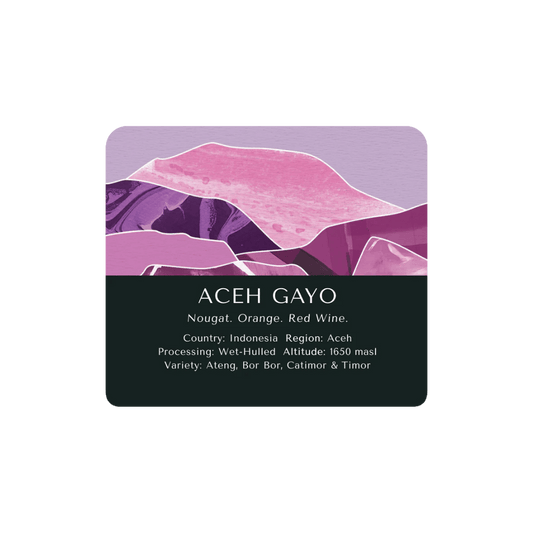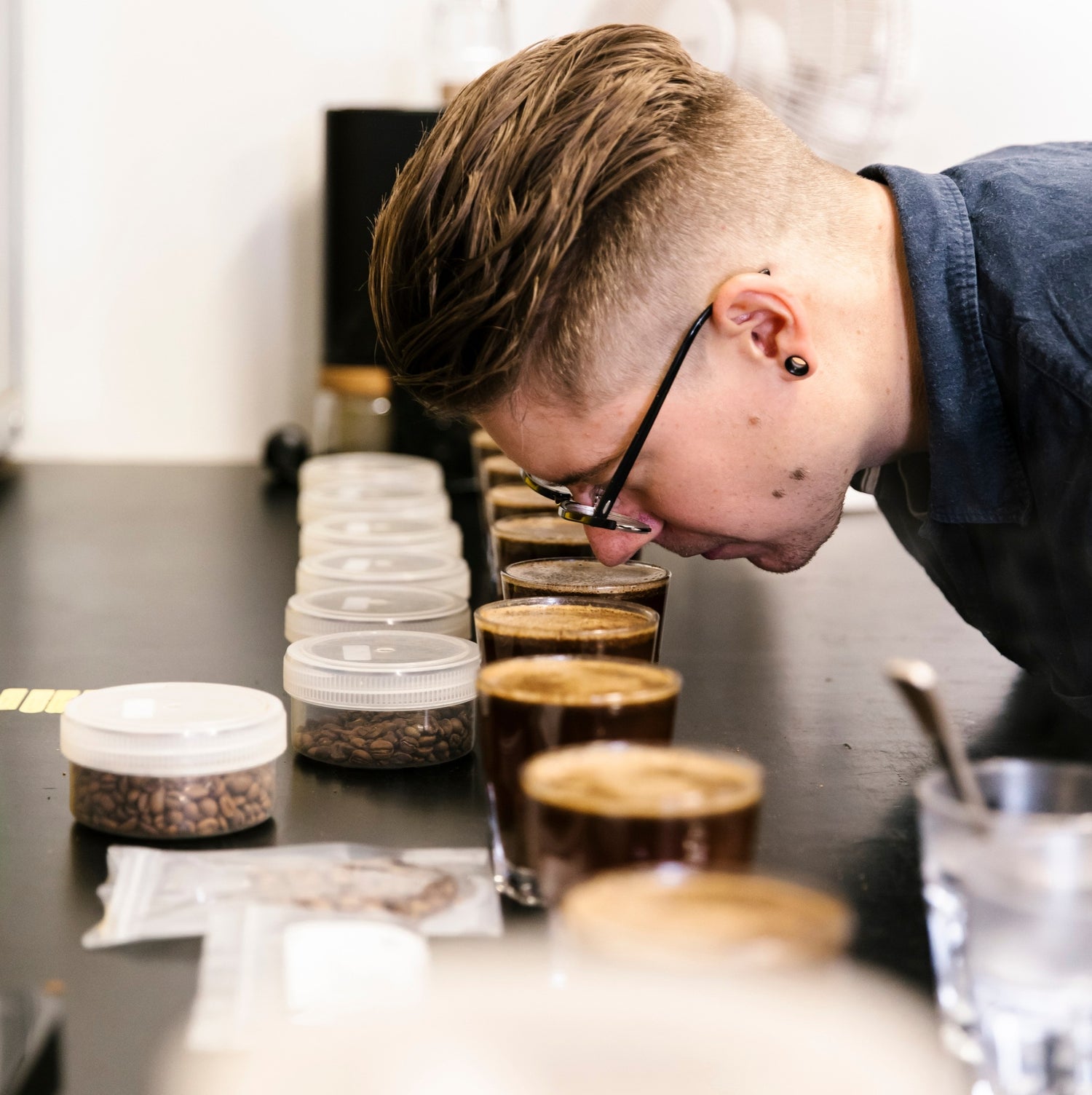
-
Coffee Profile
Roast Type Espresso and Filter
Roast Level
Espresso and Filter
Roast Level



 Medium-LightFeatures
Medium-LightFeatures Single Origin
Single Origin
 Best served Black or with Milk
Best served Black or with Milk
-
Brewing Guide
Methods recommended




 Brewing recipe for Filter
Brewing recipe for Filter1 : 16
brew ratio
20g
ground coffee
300g
brewed coffee
180s
brewing time
95°C
brewing temperature
Source: Monastery CoffeeBrewing recipe for Espresso1 : 2.5
brew ratio
20g
ground coffee
50g
brewed coffee
28s
brewing time
94°C
brewing temperature
Source: Monastery Coffee -
Tasting Guide
Taste Profile Balanced & Aromatic
Tasting Notes
Balanced & Aromatic
Tasting NotesNougat, Earl Grey, White Peach
More from Monastery Coffee
-

Seasonal Blend - Medium Roast
 Espresso and Filter
Toasted Almonds, Black Cherries, Milk ChocolateRegular price From $19.00 AUDRegular price
Espresso and Filter
Toasted Almonds, Black Cherries, Milk ChocolateRegular price From $19.00 AUDRegular price -

Seasonal Blend - Dark Roast
 Espresso
Marzipan, Dark Chocolate, Dried FigsRegular price From $19.00 AUDRegular price
Espresso
Marzipan, Dark Chocolate, Dried FigsRegular price From $19.00 AUDRegular price -

Decaf Blend
 Espresso and Filter
Molasses, Cocoa Powder, MarmaladeRegular price From $22.00 AUDRegular price
Espresso and Filter
Molasses, Cocoa Powder, MarmaladeRegular price From $22.00 AUDRegular price -

Aceh Gayo (Wet-Hulled) - Sumatra
 Filter
Nougat, Orange, Red WineRegular price From $25.00 AUDRegular price
Filter
Nougat, Orange, Red WineRegular price From $25.00 AUDRegular price -

Ngurueri (Washed) - Kenya
 Filter
Candied Lemon, Black Tea, Sugar CaneRegular price From $25.00 AUDRegular price
Filter
Candied Lemon, Black Tea, Sugar CaneRegular price From $25.00 AUDRegular price







